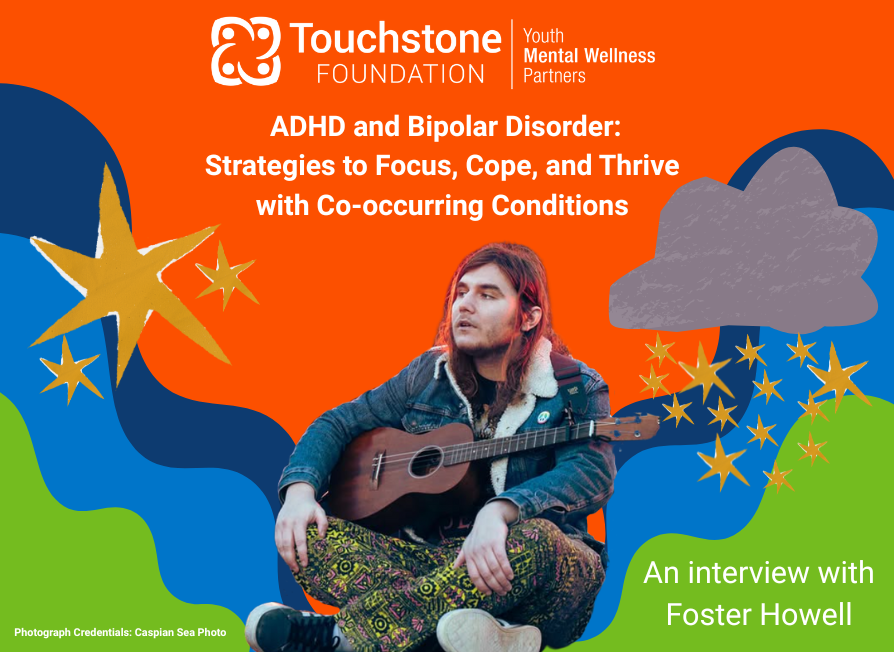
By: Amanda Katchur, Psy.D.
Licensed Therapist and Touchstone Foundation Board Member
This morning, with my heart in my throat, I sent my 3-year-old and 7-year-old children to school. Like many other parents, I stayed up last night watching the media coverage of the most recent school shooting and wondering how, why, and what I could possibly say to them that would help them to feel more safe. This feeling has become much too familiar.
Gun violence in the United States is a very pervasive issue and one that we have been hearing about with disturbing frequency. Activities that are seemingly normal have all become targets for places of gun violence; going to a concert, going to the movies, walking in your neighborhood, going to the grocery and even going to school. For young people and adults alike this threat can contribute to extreme emotions including fear, anxiety, anger and sadness.
I believe that it is important for parents, caregivers, and other key adults in a child’s life to create a safe space to have conversations about violence and particularly about school shootings. Children are often more aware than we realize and there can often be more harm by not speaking to them versus approaching them and initiating the conversation.
Here are some key points to consider when approaching your children related to conversations about gun violence and about school shootings:
- The National Children’s Traumatic Stress Network (NCTSN) first suggests that it is important to find out what your child already knows and has heard about the violent event. From there, it is possible to correct information and to clear any misconceptions that your child might have. It is also okay to return to the conversation later if new information emerges or other corrections need to be made.
- Encourage your child to ask you directly if they have questions about the event. This may help avoid any false information and also allow you to minimize anxiety by emphasizing things such as protective factors that exist for your child and ideas for how they can cope.
- Consider your child’s age, developmental level, and ability to understand the facts of the situation when sharing information or responding to questions. More simply put, we want to be sure that we are talking with our children in a way that they can clearly understand. This may vary from child to child even within your own home. For younger children, keeping facts simple generally is the best approach. Older children may have questions or ask for more details– this is where a parent or caregiver will have to consider the unique variables about their child in terms of how much to share. The idea is not to avoid having conversations but rather to tailor it to each individual child when possible.
- How much access does your child have to the media? Do they have access to television or online news? Can they watch videos on Youtube or TikTok? Can they see posts on Instagram? While organizations such as the American Academy of Pediatrics (AAP) always recommend monitoring media consumption, this is especially important during times when violence is being discussed. It is important to know what they are hearing about the situation, what message is being shared with them, and to see how they respond to it. Children and teens may also inadvertently see images that they might find disturbing.
- It is vitally important that caregivers normalize the range of emotions that a child may feel in connection to an act of violence. It is also a great opportunity for parents to model how to talk about emotions, fears, and concerns in a way that is honest but constructive. This can have a profound impact on the way that your child will express themself both now and in the future.
- Young people may show an increase in psychological symptoms following an act of violence both based on exposure through the media and conversations. This may include changes in mood, level of anxiety or irritability, and sleep or appetite disturbance. Young people may also seek to avoid certain people, places, or situations that remind them of this fear. If these symptoms persist, you and your child may benefit from speaking with a mental health provider who can assist in developing a plan to help your child to cope.
It is especially important to consider the impact that a shooting may have on particular populations, especially when these populations have been clearly identified as targets of the violence. Additionally, young people who have a history of exposure to other traumatic events may be especially impacted.
As always, we here at the Touchstone Foundation are available to offer support to families during times of crisis. We have a parent support group that is offered every 2nd and 4th Tuesday of each month, this is a group led by our Programs Manager, Shanece Bowman. This is a safe space for parents to talk through their frustrations or grievances, contact Shanece Bowman at sbowman@touchstonefound.org for more information.
We also offer Mental Health Copay Assistance, which reduces the cost of copays for therapy/counseling to just $10 per visit for families in financial need, whose income is too high to qualify for Medicaid/Medical Assistance. Learn more and apply online at https://touchstonefound.org/copay/.
Additional Resources:




